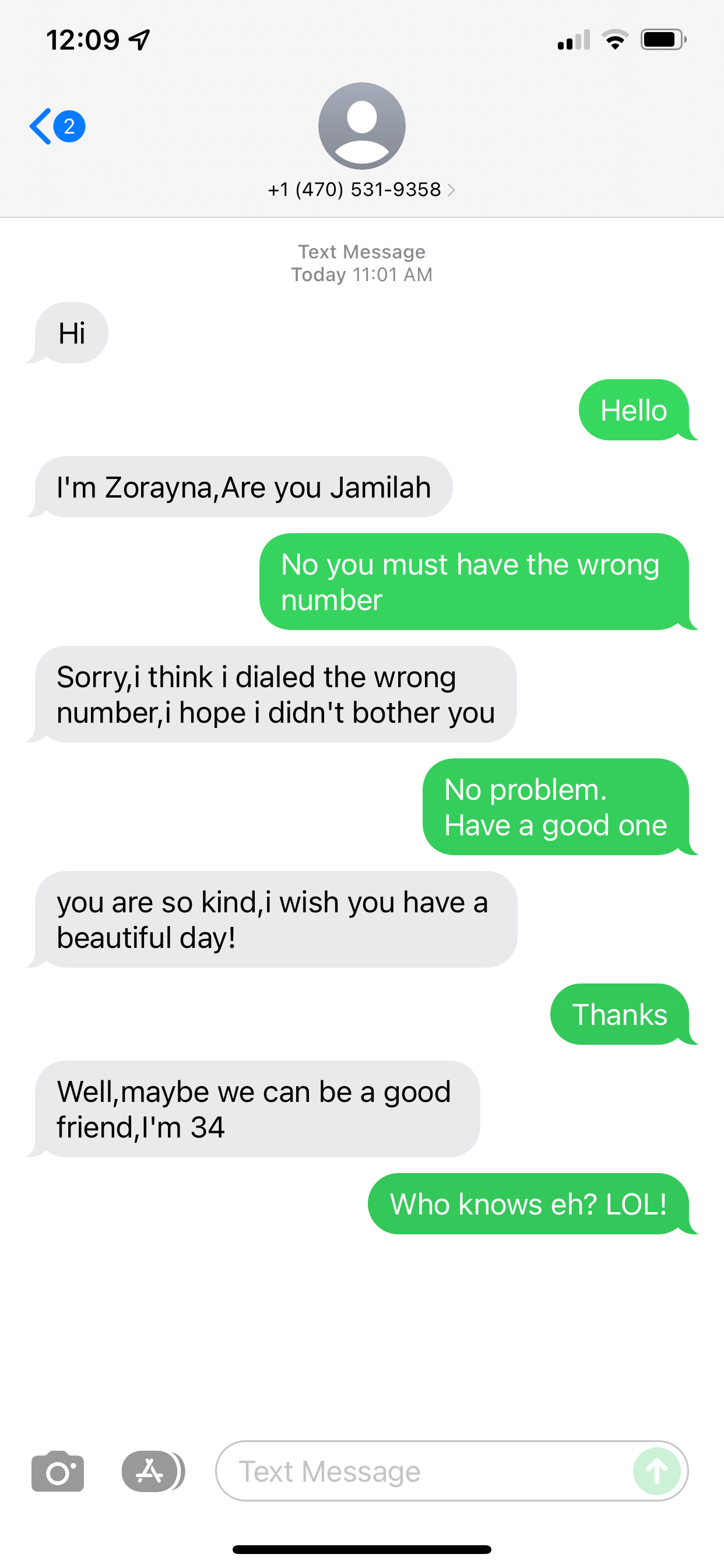470 Area Code Scam Pinging Phones in Manitoba – Beware
The latest scam that targets your mobile device is texts from the 470 area code. Shortly after 11:00 a.m. this morning I received a text message from an unknown number that wasn’t on my contacts list. The area code was 470. Before replying to the first message which was a simple “hi.” I decided to Google search the 470 area code. It was no surprise to see about 10 search headlines stack up stating the 470 area code scam. Knowing this, I decided to exchange a few messages with this mysterious person. After my LOL! Message the would-be scammer refrained from sending more texts. Was it that obvious I had caught on to their tricks?

Trending Scams is Now a Thing
On the night of July 22, 2022, people were searching on Google for area code 470 scams because they were receiving more calls and texts from that area code. In fact, there were so many searches for the 470 area code that it was trending on Google. That is the area code for the state of Georgia, more specifically Atlanta. However, what scammers or spammers do is they might set up in a different area. They can make it look like they are in Georgia but have a landline hooked up in a different state.
They use something that is called call routing whereby they have a service or whatever it may be, and they have a number that looks like they’re calling or texting from Atlanta, but they are in fact set up elsewhere, maybe another state, or possibly from another country.
This scam seems to be recycled every 2 years since 2018. It seems to be a phishing scam that people are randomly spamming people from. The nature of these calls and texts usually offers new home insurance offers or better credit card rates, maybe even fake prizes. To get the goods you must share personal information. Other curious experiences with the 470 area code involve strange activity in your checking account and they send a link to identify or verify if it’s you. Sometimes the scammers will use Amazon information links. These are infamous scams that are easy to set up and unfortunately, the most gullible individuals will fall for them. These calls are usually coming from a completely different area than the area code shown and are sometimes from scammers spoofing companies or organizations. It could be a call from someone saying they’re from the IRS or CRS informing you of owing on your taxes or something else and the Atlanta area code 470 is one of the top areas where these scams are happening.
Numbers To Watch For
There’s a myriad of area codes where phone and text scams originate from but the most popular is the 470 area code. According to CallerSmart.com, over 70,000 numbers with a 470 area code were checked and the top offenders of this unwanted trend are as follows: 470-947-3373, 470-781-3076, and 470-947-3386. Some of the calls are nothing more than harmless or even non-sensical pranks but most are bonafide scammers looking to rip you off.
What Should You Do
If you receive a call or a text from this area code don’t answer the call unless it’s from a relative or contact in that area you are expecting a call from. If you receive a link in any text messages from the 470 area whatever you do, DO NOT click any of those links.
Other Scams to Watch For
There are six main varieties of phone/text scams.
-
Amazon texts: The scammers will pretend to be an Amazon delivery notification, and will ask you to confirm your information in order to receive your package. Clicking the link in the text will take you to a phishing site.
-
USPS & FedEx texts: Just like the scam message above, these texts will contain an “urgent update” about a delivery, and will ask that you verify your information in order to get your package. Clicking the link in the text will take you to a phishing site.
-
CashApp texts: These texts will claim to come from CashApp, a popular peer-to-peer payment app. The text will describe some kind of incoming payment or issue with your account, and you’ll be asked to confirm your personal data if you click the phishing link.
-
Netflix texts: The scammers pretend to be Netflix with an alert about a problem with your account, an unauthorized login or a payment issue. If you enter your personal information on the phishing link, you could end up getting your Netflix password stolen, too.
-
Adult entertainment texts: These texts appear to come from adult-related subscription services. Clicking the link in the text will take you to a phishing site that can steal your personal data and payment information.
-
Payment card texts: These texts will usually be a bit vaguer and describe an issue with a “payment card” or financial service belonging to you. For added realism, the text may even include your name. Clicking the link in the text will take you to a phishing site.
